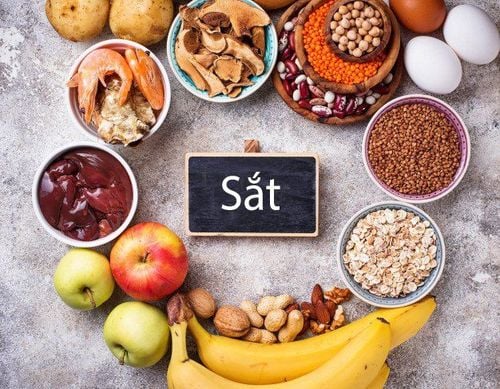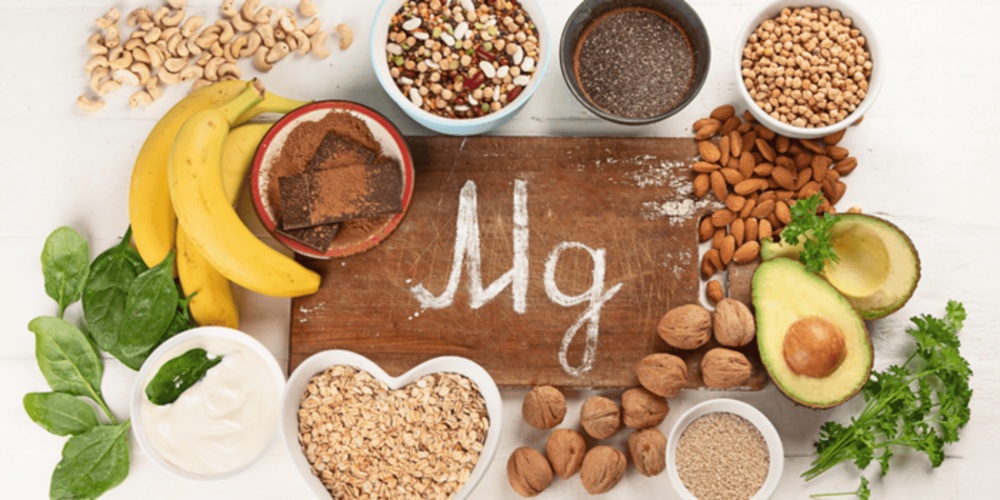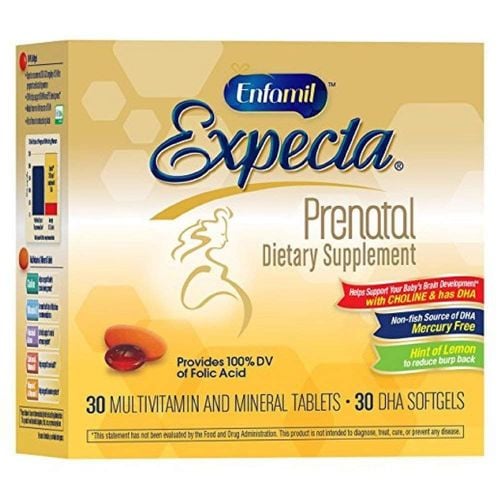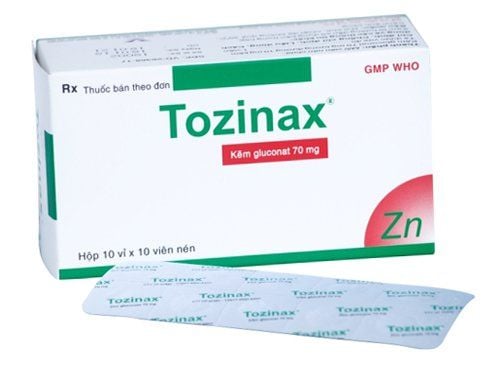This is an automatically translated article.
Article by Specialist I Tran Thi Thu Ha - Obstetrician and Gynecologist - Women's Health Center - Vinmec Times City International Hospital
Vitamin supplements during pregnancy are especially important because nutrients not only help protect the health of the mother but also help the fetus to prevent common birth defects. So what is the dosage of vitamin supplements for pregnant women? If the amount of vitamin supplements for pregnant women is too much, will there be any effect?
1. Pregnant women should take vitamin supplements during pregnancy with what dosage?
Vitamins and trace elements play a very important role in pregnancy. Currently, the use of oral tablets and vitamin supplements during pregnancy has become popular. However, experts recommend that pregnant women should only supplement with the correct dosage and under the guidance of a doctor. With each vitamin supplement for pregnant women, there should be a specific dose. Exceeding the recommended dose can be dangerous to your health and affect the unborn baby.
The following are the recommended doses of vitamins and minerals that mothers can refer to:
1.1. Folic Acid
The folic acid requirement during pregnancy is 0.4 mg (400 mcg) per day. If a pregnant woman has had a history of giving birth to a baby with a neural tube defect, she should supplement with folic acid greater than 0.4 mg/day (800 mcg). In particular, mothers should take folic acid supplements 1 month before planning to become pregnant and during the first 3 months of pregnancy.
Taking too much folic acid can mask the signs of vitamin B12 deficiency.
1.2. Iron
Elemental iron needs are 30 - 60 mg/day – twice the iron requirement of a non-pregnant person. Therefore, pregnant women need to be supplemented with iron through oral tablets and an iron-rich diet. Accordingly, in order for the body to absorb iron well, pregnant women need to supplement with a large amount of vitamin C. Pregnant women should eat foods rich in vitamin C along with foods rich in iron for better iron absorption by the body. Foods high in iron include red meat, poultry, fish, tofu, spinach, dried fruit, nuts like almonds, cashews and peanuts.
Although very important, an overdose of iron can cause constipation, nausea, vomiting, digestive irritation, dark stools and urine.

1.3. Calcium
Daily calcium requirement is 1000 -1500mg/day, 40% more than the need of an adult. Therefore, during pregnancy, pregnant women are often supplemented with calcium tablets orally in areas with low calcium diets. Accordingly, pregnant women should use calcium in the form of calcium carbonate or calcium citrate salts for best absorption by the body. Absolutely, mothers do not use calcium powder from shells or bone meal, because the risk of lead and other toxic chemicals is very high. Foods high in calcium include milk, butter, yogurt, salmon, canned sardines, spinach, broccoli, nuts, oranges and other juices.
The excessive use of calcium can cause unpleasant side effects such as bloating, constipation. In particular, if the body does not absorb all the calcium ingested, part of it will be eliminated on its own and may put more pressure on the stomach and urinary system. For the fetus, if there is an excess of calcium, it is also not good for the baby.
1.4. DHA
DHA plays an important role in fetal brain and vision development. Accordingly, pregnant women need to provide 200-300mg of DHA per day.
Currently, there is no recommendation that an overdose of DHA has adverse effects on the development of the fetus. Therefore, mothers can rest assured to supplement with DHA, but it is best to consult the dosage according to the doctor's recommendations.
1.5. Vitamin A
The recommended vitamin A requirement during pregnancy is 800 mcg RE/day (RE: retinol equivalent). Pregnant women: the average is 1,232 units (units)/day and the recommended safe level is 2,664 units (IU)/day. The main sources of vitamin A are in vegetables such as: carrots, papaya, pumpkin, liver, fish oil and dairy products: yogurt, cheese.
Although very important, but vitamin A can also be toxic to the mother and fetus when the amount taken into the body exceeds 10,000 IU / day. High doses of vitamin A can cause severe malformations of the bones, heart, brain, and head of the unborn baby.
1.6. Iodine
The recommended iodine requirement in pregnant women is 220 mcg/day. An overdose of supplements will cause common symptoms of iodine excess such as nausea, abdominal pain, runny nose, headache and diarrhea.
1.7. Magnesium
The daily need for magnesium supplements for pregnant and lactating women is about 400 mg/day. Side effects Magnesium in pregnancy can cause nausea, diarrhea or constipation.
Obviously, the use of multivitamins for pregnant women has a very good effect. However, using more than the recommended dose can cause dangerous complications affecting the health of the mother and the fetus. Therefore, pregnant women should only supplement according to the recommended amount in combination with maintaining a healthy diet during pregnancy, gentle physical activity for the best absorption by the body.
Watch now: Vaccines for mothers: Part of a healthy pregnancy

2. Before becoming pregnant, should pregnant women check their health to properly supplement vitamins and minerals?
Before becoming pregnant, to prepare for a healthy pregnancy, pregnant women should have a general health check-up to check for any underlying diseases? Because, some diseases can affect pregnancy, for example, if the mother has diabetes, thyroid disease...can cause miscarriage, pregnancy infection..
The mother goes The first visit should have a general examination and check basic tests such as blood count, glucose, thyroid function tests T3, T4, TSH, FT3, FT4, iron, calcium, vitamin D3, ferritin and take medication according to your doctor's advice if necessary.
For women before pregnancy should take folic acid, also known as Vitamin B9, because this is an essential vitamin for the development of the fetus. Taking folic acid in appropriate doses from 3 months before pregnancy to the end of 3 months of pregnancy significantly reduces the rate of fetuses having neural tube defects. This is a fairly common malformation in the fetus such as spina bifida causing paralysis of the lower extremities, urinary incontinence, loss of sensation in the lower extremities, etc. Therefore, in addition to folic acid supplements from food, right before planning a pregnancy, women should use folic acid tablets to supplement vitamins and prevent this serious malformation. The doctor will recommend a specific daily oral dose of 400-800 mcg, the current common dose (recommended by the US Department of Health) is 0.8mg (800 mcg)/day, especially in cases with a history of abnormal pregnancy (neural tube defects).
Iron is also a very important trace element that women should take before getting pregnant to prevent anemia for the mother during pregnancy. Anemia is not only dangerous for pregnant women but also affects the development of the fetus when the amount of oxygen in the blood reaching the fetus is inadequate.
Besides, a large amount of calcium also needs to be mobilized to form and develop the fetal skeletal system during pregnancy and postpartum (lasting up to 6 months after birth if the baby is exclusively breastfed for 6 months). head). If only maintaining a normal diet and diet without adding calcium according to the recommended dosage, pregnant women are at risk of calcium loss leading to osteoporosis later in life.
Normally, women before and during pregnancy need to supplement 400mcg folic acid, 27mg iron, 1000mg calcium every day. In case a higher dose is required, consult an obstetrician.
From the above information, it can be seen that preparing a pregnancy plan and supplementing with nutrients is extremely important. This not only enhances the health of the mother, but also helps the fetus to prevent malformations, thereby developing healthy, outstanding intelligence.
In addition, to prepare for a healthy pregnancy, both husband and wife should check their reproductive health 3-5 months before becoming pregnant.
The wife should:
Get vaccinated before pregnancy (especially against rubella because rubella in pregnancy is extremely dangerous ) Genetic testing to screen for genetic diseases before pregnancy Check for secondary infections In particular, women over 35 years of age, if they want to become pregnant (especially if they have never been pregnant), will have to have a very detailed health check because pregnancy at this age often problems: Ovarian failure, premature birth, higher risk of birth defects, placenta previa, preeclampsia. The husband should:
Check reproductive health, detect diseases of testicular atrophy, physiological weakness, weak sperm... Sexually transmitted diseases, especially those that cannot be cured, are extremely dangerous. Vinmec currently has many comprehensive health care programs for couples, pregnant mothers and their unborn babies, including basic pre-marital examination packages, advanced pre-marital examination packages, and maternity packages. . Vinmec has a team of experienced doctors in the fields of obstetrics and gynecology, IVF, stem cells, gene technology, capable of synchronously and comprehensively deploying the most advanced assisted reproductive techniques today.
Please dial HOTLINE for more information or register for an appointment HERE. Download MyVinmec app to make appointments faster and to manage your bookings easily.














